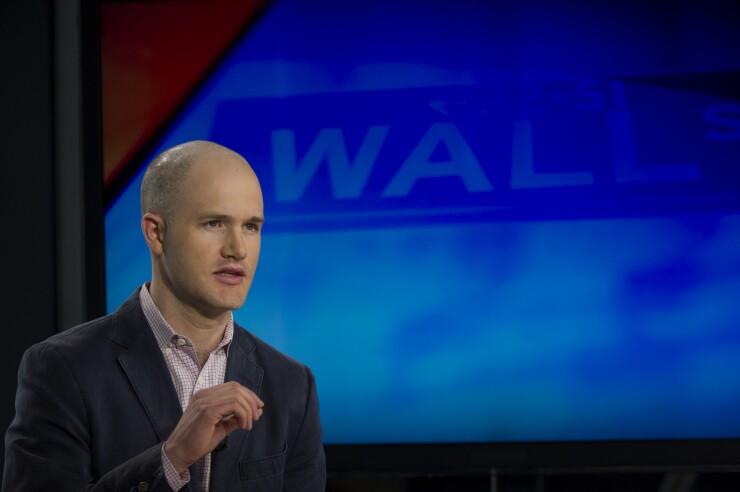Institutional investors shy about buying bitcoin and other digital assets, despite enormous recent growth in their value, may not have to wait much longer to get involved.
San Francisco startup Coinbase has launched Coinbase Custody, a new business designed to safeguard digital assets for hedge funds, sovereign wealth funds and other institutions so that they can begin buying cryptocurrencies in earnest.
Coinbase, a digital currency "unicorn" that has raised $216 million from top venture capitalists and financial firms such as USAA, Mitsubishi UFJ Financial Group and the New York Stock Exchange, says it will provide physical and cybersecurity for client funds as well as dedicated account representatives and even, in some cases, insurance.
Clients will be able to set withdrawal limits and determine which of their employees has permission to view digital-currency accounts or transfer and withdraw funds.
The appeal is obvious. By now, money managers have noticed the enviable profit potential of this new asset class — bitcoin alone has increased about 700% in price so far this year — but the risk of loss, theft or mismanagement has been too high for Wall Street to bear.
A number of custodians and asset managers — including banks — however are experimenting with blockchain technology, intrigued by the technology's promise of greater transparent custody and faster transactional capabilities.

While Coinbase's own research estimates that $10 billion of institutional money is waiting to pour into the market, the lack of a custodian that can be trusted to store client funds has been keeping it on the sidelines.
With this new business, Coinbase, which is already storing more than $9 billion of digital currency on behalf of its users, intends to be that custodian.
The goal is "to help dramatically accelerate the flow of institutional money into digital currencies over the coming years," Coinbase CEO Brian Armstrong said in a
The total worth of bitcoin and other digital assets has already grown enormously in 2017, from less than $18 billion on January 1 to more than $228 billion today. As the market for crypto assets has ballooned, more than 100 hedge funds have been created expressly to trade them.
Derivatives exchange CME Group recently announced that it will begin offering bitcoin futures contracts by the end of the year, bowing to interest from clients.
But more staid institutions, including family offices and traditional hedge funds, have yet to make their presence felt in the market. If Armstrong succeeds, the next wave of investment could make the 2017 boom look small.
It could also cement Coinbase's place as the leading digital currency company in the United States.
While Coinbase's consumer wallet platform and its order-book exchange, GDAX, today support the buying and selling only of bitcoin, litecoin and ether — three of the most popular cryptocurrencies — the company's custody offering will support a much larger number, according to its website.
New Custody clients must pay a $100,000 setup fee and commit a minimum of $10 million to use the service. Coinbase says it will charge a management fee of 10 basis points per month.





